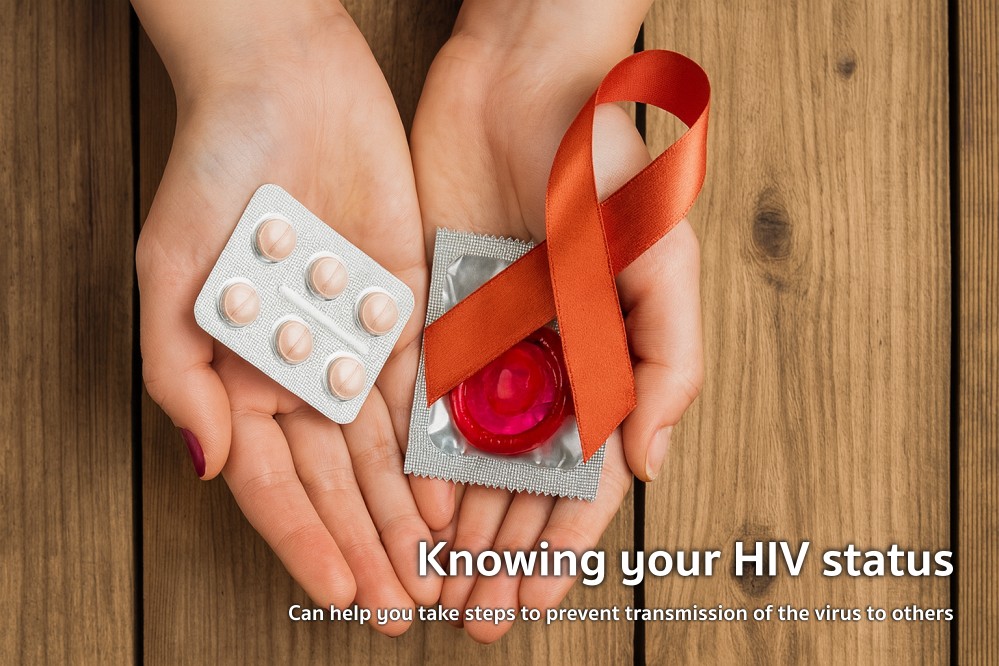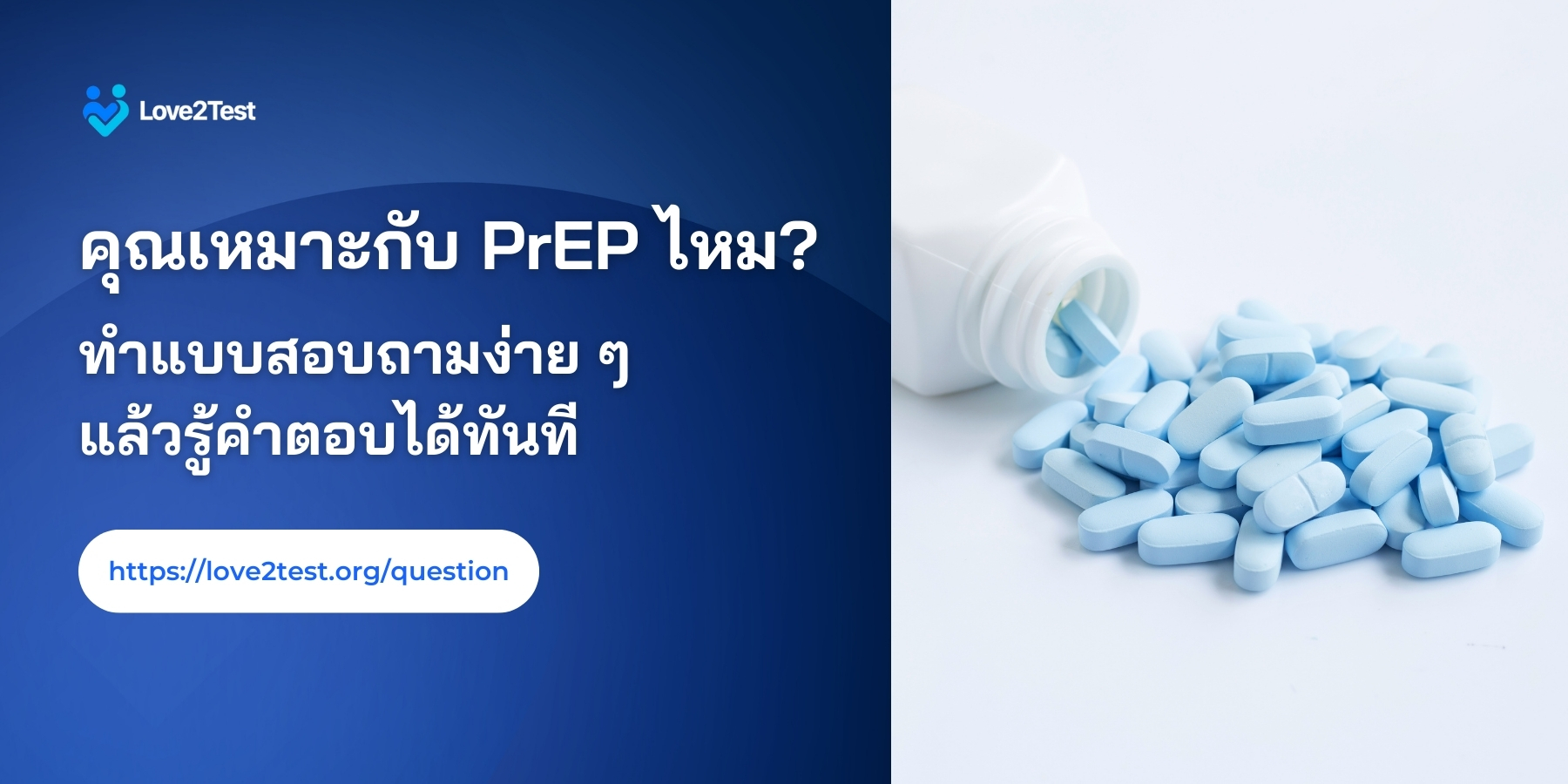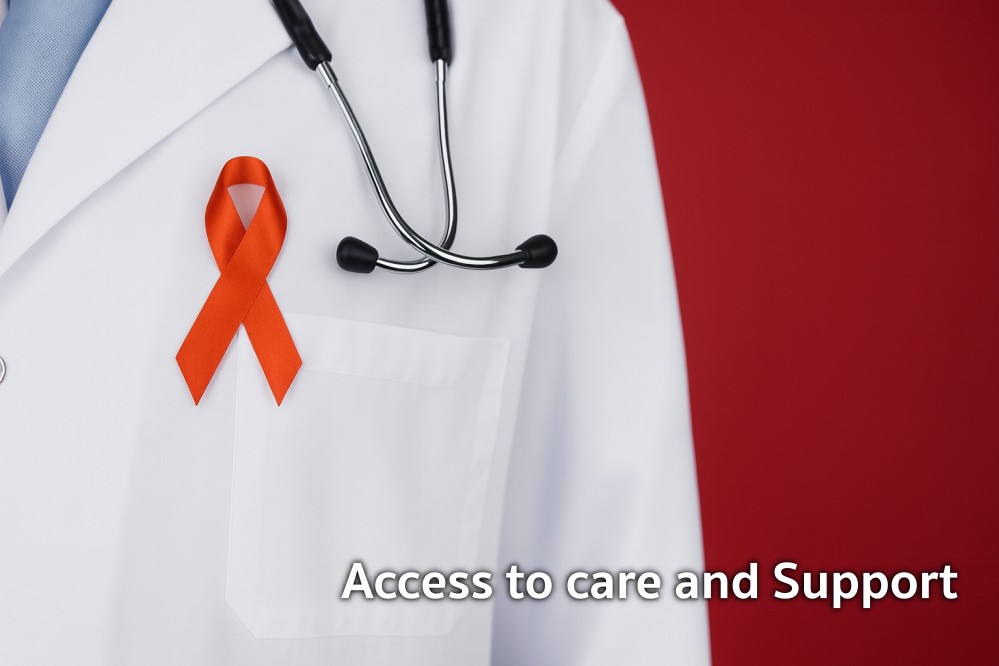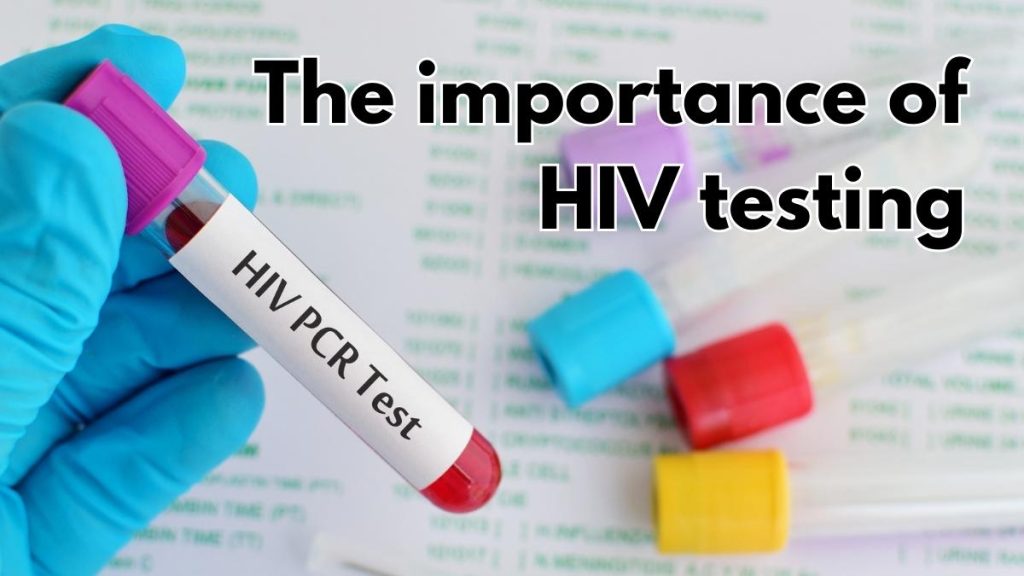HIV testing is essential because it can detect the presence of the virus in the body. HIV (Human Immunodeficiency Virus) is a virus that attacks the immune system and can lead to AIDS (Acquired Immunodeficiency Syndrome). HIV is transmitted through bodily fluids, such as blood, semen, vaginal fluids, and breast milk.
Early detection of HIV can lead to prompt treatment, which can improve a person’s health outcomes and reduce the risk of transmitting the virus to others. HIV testing can also help individuals take steps to prevent transmission of the virus to others, such as using condoms during sex and not sharing needles.
HIV testing can help with prevention.
Knowing one’s HIV status can also provide peace of mind and reduce anxiety and uncertainty. HIV testing is recommended for everyone between the ages of 13 and 64, as well as those at higher risk for HIV, such as men who have sex with men, people who inject drugs, and those who have multiple sexual partners.

In conclusion, HIV testing is a critical component of HIV prevention and care. It is important to encourage regular HIV testing and to reduce the stigma associated with HIV testing, so that people can access the care and support they need to manage their health.
What’s the importance of HIV testing?
HIV testing is important for several reasons:
Early detection and treatment
Getting tested for HIV can help detect the virus early, which allows for prompt treatment. To help people with HIV live longer and healthier lives, as well as reduce the risk of transmitting the virus to others. Early HIV treatment, which can help manage the virus and delay the progression to AIDS. Treatment can also improve a person’s overall health outcomes and reduce the risk of transmitting the virus to others, such as;
- Better long-term outcomes
- Studies have shown that people who start HIV treatment early have better long-term health outcomes than those who start treatment later. Early treatment can help preserve the immune system, reduce the risk of developing AIDS-related illnesses, and prolong life expectancy.
- Lower transmission rates
- People who are on effective HIV treatment have a very low risk of transmitting the virus to others. Early detection and treatment can help reduce the risk of HIV transmission to sexual partners and prevent mother-to-child transmission during pregnancy and breastfeeding.
- Improved quality of life
- Early detection of HIV can help people access medical care and support services that can improve their quality of life. HIV treatment can help manage symptoms, prevent infections, and address other health issues.

Prevention
Knowing your HIV status can help you take steps to prevent transmission of the virus to others. If you are HIV-positive, you can take steps to protect your sexual partners and prevent mother-to-child transmission during pregnancy and breastfeeding.

If you have been diagnosed as HIV positive, the following are some of the steps you can take to manage your health and prevent the transmission of HIV to others:
- Seek medical care
- It is important to seek medical care from a healthcare provider who is experienced in treating HIV. They can help you develop a treatment plan that works best for you and monitor your progress over time.
- Begin antiretroviral therapy (ART)
- Antiretroviral therapy (ART) is a combination of medications that can help control the HIV virus in your body, reduce the risk of developing AIDS, and improve your overall health.
- Practice safer sex
- HIV can be transmitted through sexual contact, so it is important to practice safer sex to prevent transmission to others. This includes using condoms during sex and disclosing your HIV status to sexual partners.
- Get support
- Being diagnosed with HIV can be emotionally challenging. It is important to get support from friends, family, or a support group to help you manage the emotional impact of living with HIV.
- Take care of your overall health
- HIV can weaken the immune system and make it more susceptible to other illnesses. It is important to take care of your overall health by eating a healthy diet, getting regular exercise, and getting vaccinated against other illnesses such as the flu and pneumonia.
- Follow up with your healthcare provider
- It is important to follow up with your healthcare provider regularly to monitor your HIV treatment and address any other health concerns that may arise.
Peace of mind
Getting tested can provide peace of mind, especially if you are sexually active or have engaged in high-risk behaviors. Knowing your HIV status can also help reduce anxiety and uncertainty. Getting tested for HIV can be a stressful experience, but there are things you can do to help ease your anxiety and find peace of mind. Here are some tips to help you feel more comfortable while getting an HIV test:
- Educate yourself
- Learn as much as you can about HIV and the testing process. This can help reduce anxiety and give you a better understanding of what to expect during the testing process.
- Talk to a counselor
- Talking to a counselor or mental health professional can be helpful in dealing with anxiety related to HIV testing. They can provide you with coping strategies and support to help you through the testing process.
- Seek support from loved ones
- Reach out to friends and family for support. Having a support system can help reduce anxiety and provide comfort during the testing process.
- Practice relaxation techniques
- Techniques like deep breathing, meditation, and visualization can help calm the mind and reduce anxiety. Try practicing these techniques before and during the testing process.
- Choose a reputable testing center
- Choosing a reputable testing center can help ease anxiety about the testing process. Look for a center with experienced and knowledgeable staff who can answer your questions and provide support during the testing process.
Remember, getting tested for HIV is an important step in taking care of your health. By taking steps to reduce anxiety and find peace of mind, you can make the testing process easier and more manageable.

Access to care and support
If you are diagnosed with HIV, you can receive access to medical care and support services that can help manage the virus and improve your quality of life. There are many resources available for accessing care and support for HIV. Here are some steps you can take to access care and support for HIV:
- Find an HIV healthcare provider
- Look for a healthcare provider who has experience in treating HIV. Your local health department, HIV clinic, or AIDS service organization can help you find a provider in your area.
- Access medication
- HIV medications can be expensive, but there are programs available to help cover the cost. You can contact your healthcare provider, local health department, or AIDS service organization for information about medication assistance programs.
- Join a support group
- Joining a support group can be a helpful way to connect with others who are living with HIV. Your healthcare provider or local AIDS service organization can provide information on support groups in your area.
- Seek mental health counseling
- Living with HIV can be emotionally challenging. Mental health counseling can help you cope with the emotional impact of living with HIV. Your healthcare provider or local AIDS service organization can provide information on mental health services in your area.
- Access additional services
- There are many other services available for people living with HIV, such as transportation assistance, housing assistance, and legal services. Your local AIDS service organization can provide information on these services in your area.
There are many resources available to help you access care and support for HIV. It is important to seek out these resources and get the help you need to manage your HIV and live a healthy life.
Overall, HIV testing is an essential part of HIV prevention and care. It is recommended that everyone between the ages of 13 and 64 get tested for HIV at least once, and those at higher risk get tested more frequently.
Read more
HIV testing is a process that involves detecting the presence of the human immunodeficiency virus (HIV) in the body. HIV testing is important because it can help identify people who are living with HIV and provide them with access to treatment and support services. HIV testing can be done through a variety of methods, including blood tests, oral fluid tests, and rapid tests. Testing is confidential and anonymous, and results can typically be obtained within a few days. It is important to get tested for HIV if you are sexually active, have shared needles or other injection equipment, or have had a known exposure to HIV. Testing can help people take control of their health, prevent transmission to others, and access appropriate care and support

